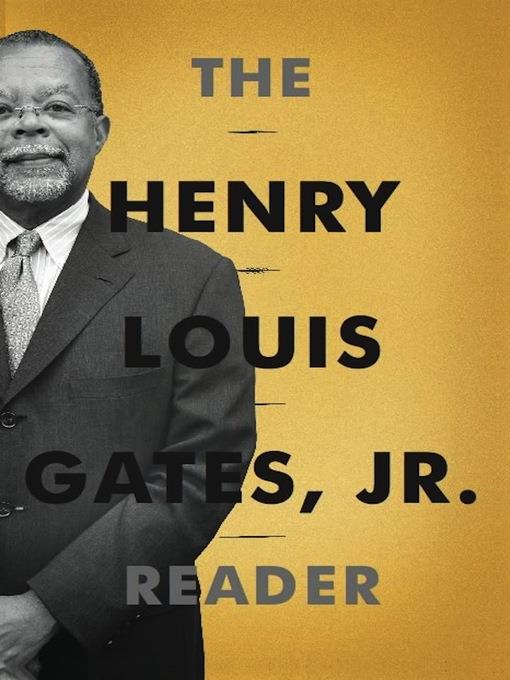
The Henry Louis Gates, Jr. Reader
کتاب های مرتبط
- اطلاعات
- نقد و بررسی
- دیدگاه کاربران
نقد و بررسی

March 12, 2012
Three decades of essays, introductions, op-eds, interviews, and other fugitive pieces by the multifaceted Gates (Harvard professor, producer, editor, belletrist, genealogist, filmmaker, cultural critic) are gathered in this diverse and often entertaining collection. Although sometimes marked by “arcane technicalities,” Gates (Colored People) enjoys signifying (loosely defined as “making a point by indirection and wit”), a mode of composition that allows the bookish and the personal to merge; Derrida can be invoked and Gates’s “own first public performance” at age four can be recalled in “The Master’s Pieces,” one of his seminal essays treating canon formation in literature. Gates’s range is broad: assaying the life of West Indians in London and “blackness in Brazil”; chatting with James Baldwin, Josephine Baker, Wole Soyinka, and Condoleezza Rice; exploring the DNA heritage of Bliss Broyard and Oprah Winfrey; assessing black theater along the “Chitlin Circuit”; and decoding 2 Live Crew. One of his enduring scholarly contributions is his recovery and assemblage of lost, buried, or scattered works by African-American writers. His introductions to Our Nig and The Bondswoman’s Narrative are particularly valuable, as are several critical essays treating issues of canonicity and the place therein of African-American literature that stimulated provocative intellectual chatter as the works of African-American writers entered the citadels of academia during the late 20th century. Agent: Tina Bennett, Janklow & Nesbit.

March 15, 2012
Omnibus of writings on race discourse and genealogy over three decades by the eminent Harvard professor. Most notably in the academic world, Gates (Life Upon These Shores: Looking at African American History, 1513-2008, 2011, etc.) excavated and promoted the significant original mid-19th-century African-American women's narratives Our Nig by Harriet E. Wilson (rediscovered in 1982) and The Bondwoman's Narrative by Hannah Crafts (first published in 2002). The author's insightful introductions to both works are reproduced here. He has been instrumental in reinvigorating the African-American literary tradition by drawing on these and other little-known or otherwise lost contributions--e.g., work by early poet Phillis Wheatley, who was writing at a time when the absence of black writing proved to many the inferiority of the race. Yet for Gates these long-lost writings proved both their "certificate of humanity," by embracing the European tradition, and their utter distinctness, especially in terms of language. As director of the W.E.B. Du Bois Institute for African and African American Research at Harvard, he has co-edited important volumes dear to the legacy of Du Bois such as African America Lives and Africana: The Encyclopedia of African and African American Experience, the prefaces to which also appear here. In his persistent delving into genealogical research of his own family and those of famous others such as Oprah Winfrey, he has made some fascinating and troubling disclosures--e.g., outing Anatole Broyard and Jean Toomer for "passing" for white. Finally, he demonstrates in numerous journalistic pieces that he is an engaging and accessible writer, especially in interviews with Josephine Baker and James Baldwin and with Condoleezza Rice. A meaty selection from Gates' large-bodied work.
COPYRIGHT(2012) Kirkus Reviews, ALL RIGHTS RESERVED.

April 15, 2012
This collection of essays focuses on the themes Gates has spent so much of his career exploring, the African diasporic culture found throughout the world and the roots traced back to Africa. As scholar, writer, and filmmaker, Gates has been a diligent researcher and keen observer of all things culturally rooted in Africa, but he has also been inclusive of the other ethnicities and cultures that are part of the making of African Americans. Interspersed throughout is Gates' own story of falling in love with history and genealogy as he searched for family roots as a child, hoping for a coat of arms and finding instead slavery and elusive traces of slave-master kinship. The collection begins with essays on the complexities of roots-finding for African Americans. Also included are essays on lost African American literary works and efforts to broaden the American literary canon to include the voices of African Americans. A final section includes interviews with James Baldwin and Isabel Wilkerson, among others. Fans of Gates will revel in this collection of great storytelling craft and appreciation of roots and connections.(Reprinted with permission of Booklist, copyright 2012, American Library Association.)

























دیدگاه کاربران